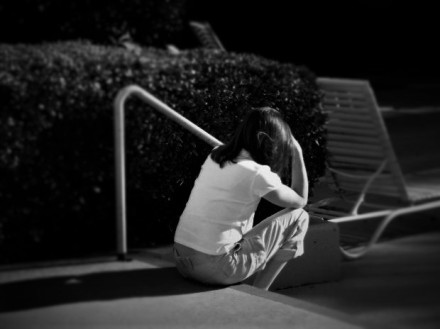
I thought I’d take some time to practice mindfulness in the midst of one of my more difficult moments today being overwhelmed with grief. I’ve been having quite a few of these overwhelming moments this week. I focused on what my body was doing and took inventory of my bodily reaction to the current bout of emotional turmoil.
Here’s the list I came up with from today’s grief event and things I remember from others (I’m sure there’s more):
- stomach muscles clenched
- stomach queasy, sometimes to the point of vomiting
- tight chest
- clenched teeth
- gasping for air, feeling like I can’t breathe
- crying
- sobbing
- feeling like I’m drowning in my tears
- doubled over
- head and neck tight
- muscles throughout my body tight
- toes and feet curled and clenched
- trembling, shaking
- dizzy
- poor balance when walking
- stuttering
- closed eyes
- I bite my lips
- I hide face behind hands or clothing
- I suck and chew on clothing (shirt edge usually)
- aching all over
- sometimes the crying triggers my asthma
And when this happens, all I want to do is crawl into bed and sleep … for a thousand years.
One benefit of mindfully taking stock of my body’s reactions, allowed me to make other choices to help myself feel better. When I noticed my clenched teeth, I made an effort to relax my jaw. When I noticed muscles that were being held tightly, I took some time to focus on releasing those muscles as much as I could.
It didn’t take care of everything, but it made a small difference in how I was coping. A small difference right now can be the difference between life and another stay in the hospital on Suicide Watch.
This has been a bad, bad week.





